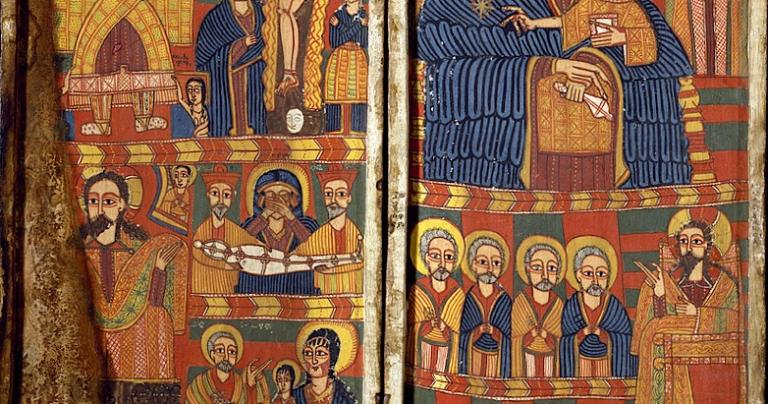 Christmas is the eternal coming into the temporal. Time passes, but Christmas endures unmovable forever.
Christmas is the eternal coming into the temporal. Time passes, but Christmas endures unmovable forever.
Jesus is Lord of Time, though not the Doctor Who kind. In His divine nature, He does not travel through time, but transcends the dimension. God sees all events that occur in our time-bound dimension simultaneously. As the Christian philosopher Boethius put it:
“. . . so does He see all things in His eternal present.“*
In His divine nature:
“’God is eternal; in this judgment all rational beings agree. Let us, then, consider what eternity is. For this word carries with it a revelation alike of the Divine nature and of the Divine knowledge. Now, eternity is the possession of endless life whole and perfect at a single moment.“**
Put (perhaps too) simply, God does not live his life as we do in a sequence of events measured by time. He has no past or future. God has all His life in a single moment of divine time. As a result, God does not experience the loss of the His joyous “past” or suffer any worry about the future. Of course, in His Divine Nature, God cannot experience the pleasures of nostalgia or the delight of anticipation in Himself, but He has known them through Christmas. In the Incarnation, the divine nature and the human nature came together in one person and this person, Jesus, experienced all the joys and eventually all the sorrows of time. The two different ways of experiencing reality were united in one person: Jesus. Jesus’ human nature and divine nature were not confused or destroyed, they were harmoniously united in Jesus.
Jesus was born, took a breath, nursed, and slept. He continued as God in His Divine Nature: remarkable Jesus! Any calculus about the probability that such a being, if such a being existed, would do miracles or rise from the dead must take into account His very nature: one person, two natures (including two wills).
Jesus in His very personhood has both possession of “endless life whole and perfect in a single moment” and the ability to look forward to tomorrow.
This staggering act of God changes all. Let me focus on one thing: we should stop prioritizing the ministry of the those who communicate over those who do. Mary helps us see the error.
Mary waited, pondering in her heart, knowing that she was going to see something remarkable. How could it be otherwise? She had the job of raising Jesus who had to grow up. She was with God for decades. Once I met a theologian who had respect for Mary, but higher praise for Paul, since Paul (after all) produced more of the Bible.
This runs the risk of confusing quantity with quality. Mary does not say much, but what she says has a high percentage of Magnificat. Paul’s letter to Philemon is inspired, but safe to say not up to his standard in Romans! The idea also confuses being with verbalizing. Mary was with God in the flesh, doing what needed to be done for decades. She never ran away following her Son to the foot of the Cross. This strong woman heard the word of the Lord for decades and consented from the bottom of her heart. The ministry of Jesus reflects her obedient work: Jesus needed her as a person with a human nature and she did not let him down.
Paul would have had nothing to say without Mary’s obedience. His masterwork Romans is a testimony to her thoughtful parenting and decades long fellowship with the very God and very Man: Jesus.
Let’s go sit at the feet of Jesus and listen, act, and create a home. That is the work of Mary for the Lord of Time: Jesus. We can imitate her blessed example.
———————-
*Consolation of Philosophy, Penguin Classics (Kindle Edition), @page 140.
**Ibid, @page 134.











